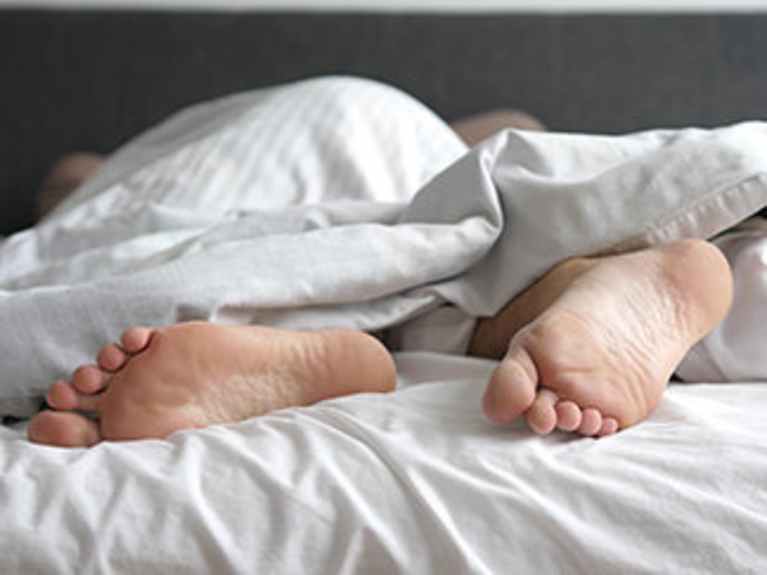
Do you twitch in your sleep? Here's why — and how you can help stop it.
If your sleep partner yells because you've unknowingly thrown an arm or a leg in his or her direction, you're probably experiencing hypnic jerks; the involuntary muscle movements that sometimes occur when falling asleep.
Some 60 to 70% of Americans experience this sensation at some point in their lives estimates the American Academy of Sleep Medicine.
Also known as sleep starts or night twitches, these movements are generally harmless, though your partner might not appreciate the occasional kick. The experts at Sleep Number says one theory for these involuntary movements is the decrease in muscle tone as bodies shift from wakefulness to sleep.
You can try to stop the movements, but those who twitch and jerk often don't even know it's happening. It's rare for the spasms to be strong enough to wake up the sleeper or his or her partner, briefly interrupting sleep.
What's Happening When You Twitch?
According to Sleep Number, during the phase of falling asleep, we often have a quick dream — or dreamlet — which, for many people, is about falling. Jerking or twitching is the safety mechanism our body unconsciously produces to keep us from the sensation of falling.
The muscle spasms may also come about through external stimuli such as sound or light, and for some people, can be accompanied by dreams, hallucinations, or the sense of bright lights or loud noises coming from inside the head.
How to Stop Twitching
You're more likely to experience twitching and jerking when you're sleep-deprived, so make sure to log 7 to 8 hours of quality sleep a night by developing and maintaining good sleep habits such as sticking to a regular bedtime and wake-up schedule.
Stress and anxiety may also increase the incidence of twitching, so before bed, practice relaxation techniques such as meditation, yoga and deep breathing.
Caffeine can also be a culprit. Experiment by reducing or eliminating your caffeine intake for several days to see if you notice a difference.
Make sure you get enough exercise. Physical activity during the day is thought to help keep your muscles more at rest during the night.
Finally, a warm bath and gentle leg massage before bedtime may relax your muscles so they don't twitch.
Like diet and exercise, quality sleep is essential for optimal wellbeing and performance. Because everyone's sleep needs are different, Sleep Number® smart beds sense your movements and automatically adjust firmness, comfort and support to keep you both sleeping comfortably. Find your Sleep Number® setting for your best possible night's sleep, and if you own a Sleep Number® bed, log in to your Sleep Number® Rewards account to see your exclusive offers, refer friends and more.